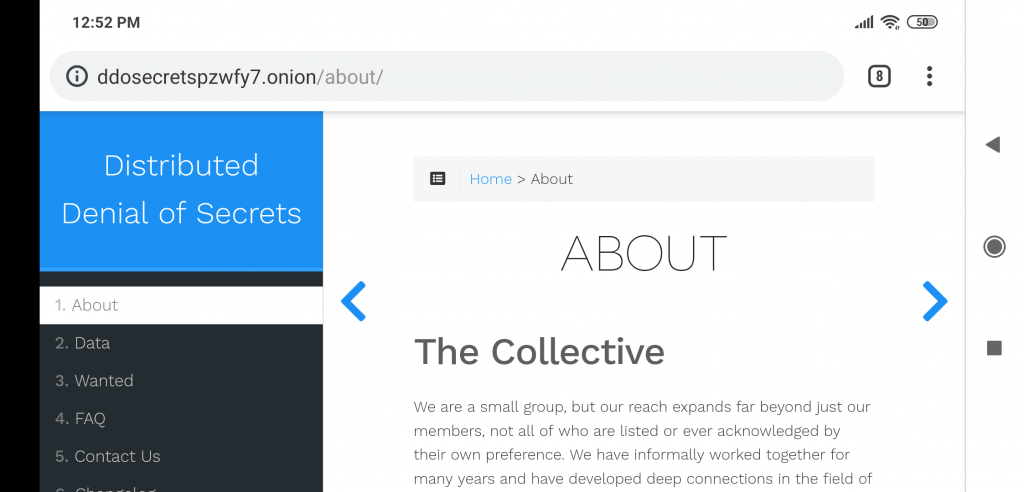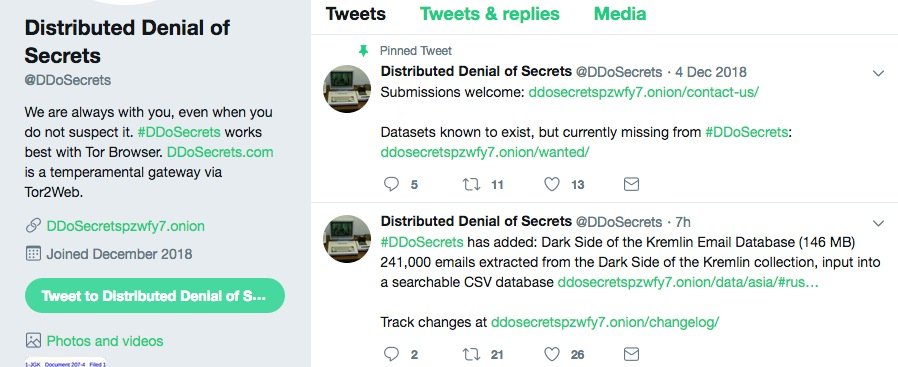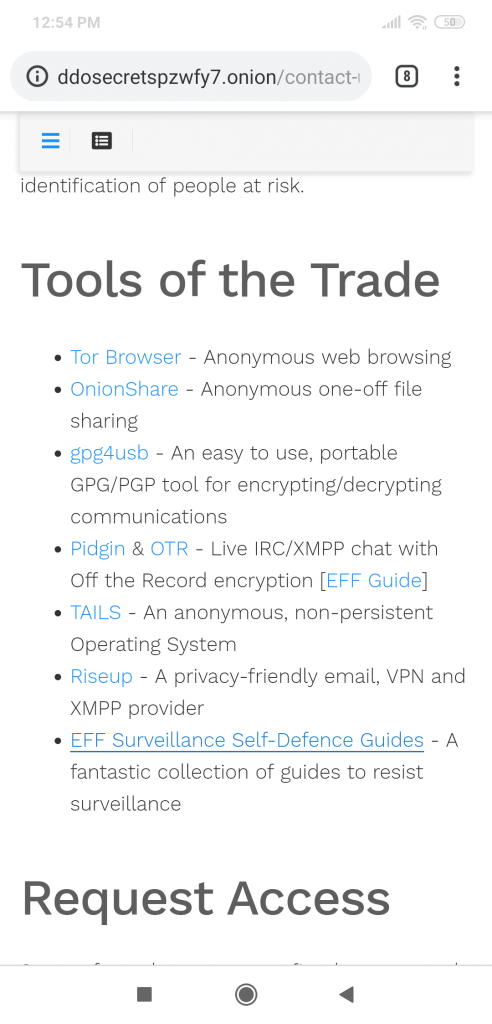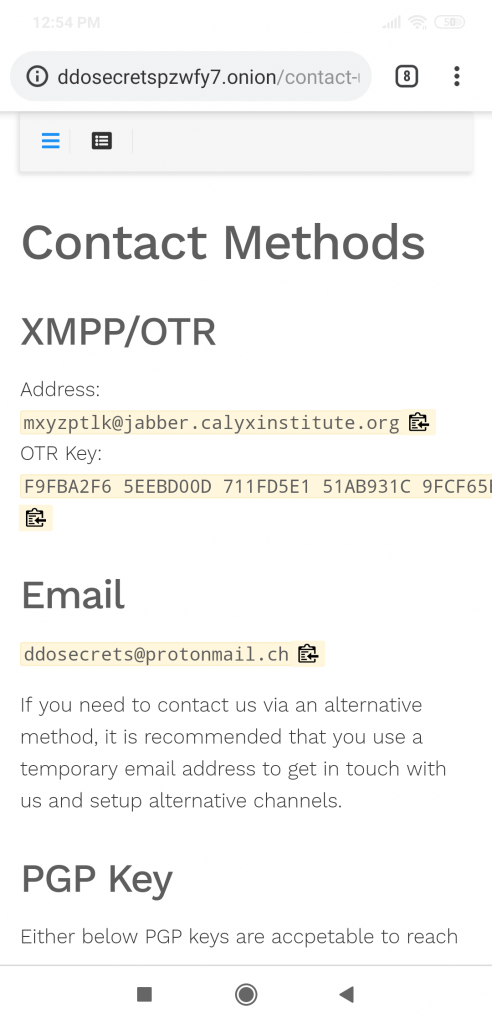
The cyberactivism has a new anonymous face
According to Salvador Ruiz, network security specialist from the International Institute of Cyber Security, Distributed Denial of Secrets (DDOS) is a transparency collective whose main goal is to enable the free transmission of public interest data. DDOS aims to avoid any political, corporate or personal leanings, and simply act as a beacon of available information. As a collective, DDOS do not support any cause, idea or message beyond ensuring that information will be available to those who need it most – the people.
How to get: https://ddosecretspzwfy7.onion.to/
The grouo recently announced the release of a massive email leaking belonging to Russian oligarchs, journalists, religious leaders and politicians.

While DDOS team is happy to serve as an index to data of all varieties, mostly follow this two criteria:
- Is the data of public interest?
- Can a prima facie case be made for the veracity of the contents?
Unless already public, or as authorized by its source, DDOS do not disclose the providing party of any received information, and it’s fully committed to ensuring their anonymity from all threats. DDOS could never advise on the perfect procedure for transferring data to its platform anyone else, but it can act as a shield for that process and share advice from its experience. Often its role is to not just make data available, but to act as an anonymity guard to pass data to journalists and other figures best positioned to interrogate it.
The Collective
DDOS is a small group, but its reach expands far beyond just the members, not all of who are listed or ever acknowledged by their own preference. DDOS have informally worked together for many years and have developed deep connections in the field of data gathering, research, journalism, activism and technology. In 2018, DDOS members decided to put together their expertise and time to create a unified project representing their shared goals, and provide a platform for others to know and trust.
The modern state of “leaking” organizations has deteriorated rapidly for many years, poisoned by their own egos and interests. The DDOS view is that data is a resource and a record – this data can never tell the whole story. DDOS trusts the public to be responsible with data, and open it to them for the rigorous examination of it. In time, the truth can always emerge.
The Team
Emma Best – @NatSecGeek
Emma is an independent journalist who has spent more years filling out FOIA’s than most people have spent reading the news. Known for her tenacity in always finding the next lead and penetrating the bureaucratic walls of government, she has a keen eye for the details in every document and is a ruthless advocate for the truth even when all others dare not dig deeper.
“The Architect”
This is the pseudonym for DDOS’s technical behemoth that prefers to remain anonymous. He is no stranger to controversy and has been involved in privacy and technology activism for at least 10 years. The Architect is primarily responsible for advising on the operational security of the collective and maintains web and technical operations for the group.

WANTED
DDOS is always looking to expand its available data sets. They can consider almost any data, but they are actively seeking out the below information. If you can help them locate it, it would be greatly appreciated!
ACAPOR Leaked Emails (Torrent Hash: 4b92fe94ccb803d6c5b97abc4c7ebdf706290539)
Filipe Menezes Emails (Torrent Hash: 2866dc3538d12d99c88eb254591773d3821d939c)
Goldcorp (Torrent Hash: 0c385c2010e8a47e046ac8284f2f848c3ce5f8de)
Alleged emails from Ukraine’s Central Election Committee (Torrent Hash: 2df1c468641911537e3fbd22647c4bd14afebed7)
Anonymous Bulgaria/Greece/Spain releases
Armenia/Azerbaijan leaks and counterleaks
Five Star Movement (Moviemento 5 Stelle, M5S) emails
GhostSec advisory list of extremist sites and flagging content on Internet Archive
Lizard Squad database
LulzSec Canada/Peru releases
mSpy hack-Parastoo leaks
RedHat leaks
Team GhostShell releases
Telecomix releases
Seventh Day Adventist Church leak
Syrian Electronic Army leaks
Ukraine General Prosecutor’s Office leak
Winter-Leak.com leaked HBO files
Yemen Cyber Army Leaks


He is a well-known expert in mobile security and malware analysis. He studied Computer Science at NYU and started working as a cyber security analyst in 2003. He is actively working as an anti-malware expert. He also worked for security companies like Kaspersky Lab. His everyday job includes researching about new malware and cyber security incidents. Also he has deep level of knowledge in mobile security and mobile vulnerabilities.











